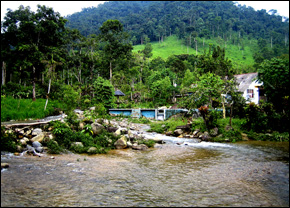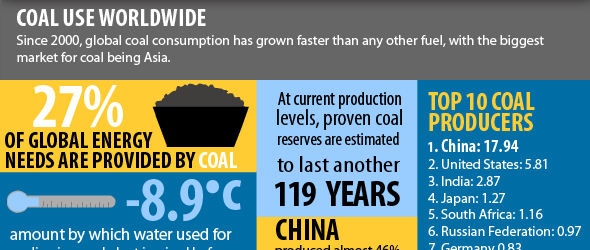Indigenous Groups in Ecuador Protest Water Reform Bill
The water legislation would consolidate too much power in the hands of the government, protesters say.

Indigenous groups in Ecuador held a series of protests this week to challenge a water reform bill they say would limit their access to water sources in favor of mining companies and agribusiness, IPS reports.
More than 1,000 protesters surrounded the national Congress building as legislators began debating the water bill, according to IPS. The Ecuadorean Confederation of Indigenous Nationalities (CONAIE), a powerful indigenous rights group, has been coordinating demonstrations in the capital and several provinces.
The bill in question would create a national water authority and give the president power to appoint a minister-level water official. The government argues the proposed changes are necessary to better regulate the country’s water resources.
The legislative initiative includes provisions for a national water council that would have powers over only water law enforcement, while decision-making would rest in the hands of the water minister. Meanwhile CONAIE wants to see the balance of power in the council shift to indigenous groups, peasant organizations and local water boards, which supervise irrigation allocations.
CONAIE wants the constitutional order of priority respected for water uses: human needs first, followed by irrigation, environmental flows and industrial activities. The environmental group’s third demand is a cancellation of the water supply contract with a consortium of private operators in Ecuador’s largest city, Guayaquil.
Protesters are camped in a park near Congress, saying they will stay until they see progress.
“We’ll stay 10 days, 15 days, however long is necessary,” Marlon Santi, the head of CONAIE, told IPS.
Other countries in South America have also had changes in water policy upended by mass popular revolt. The most cited regional instance is 2000 in Cochabamba, Bolivia when large street demonstrations over hikes made by the U.S.-based Bechtel subsidiary Aguas del Tunari caused the city to cancel the contract.
However, returning the city’s supply system to public hands has not improved service as much as hoped, according to analysts interviewed by IPS. Most of the water is lost to leakage and illegal connections and is unavailable a few days each week, while the administration is heavy with political appointees, inept management and wasteful practices.
Instances in other developing countries, if managed properly, have shown that private concessions can improve service while charging residents less than they would pay for water brought by tanker. Manila Water, operating in the Philippines, raised rates in the capital city six-fold at the beginning of its contract but doubled the number of connections while the poorest residents pay one-tenth the cost of water via tanker.
Source: IPS
Brett writes about agriculture, energy, infrastructure, and the politics and economics of water in the United States. He also writes the Federal Water Tap, Circle of Blue’s weekly digest of U.S. government water news. He is the winner of two Society of Environmental Journalists reporting awards, one of the top honors in American environmental journalism: first place for explanatory reporting for a series on septic system pollution in the United States(2016) and third place for beat reporting in a small market (2014). He received the Sierra Club’s Distinguished Service Award in 2018. Brett lives in Seattle, where he hikes the mountains and bakes pies. Contact Brett Walton








Leave a Reply
Want to join the discussion?Feel free to contribute!